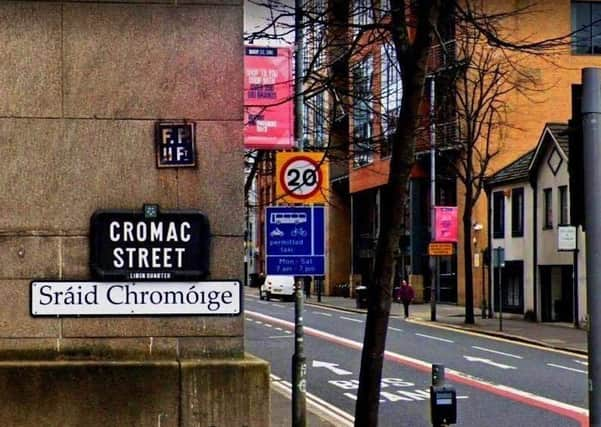Equality Commission denies council claim it provided advice on Irish language street signs policy


Amid hundreds of applications to put Gaelic translations on street names in the capital, a councillor has called for an investigation after the commission appeared to distance itself from the council’s stated position – that placing the bilingual signage, even in predominantly unionist areas, would not breach any legislation or equality protocols.
The commission has denied issuing that advice to the council, saying the body “has not provided specific advice to Belfast City Council re their policy on the erection of Irish language signage”.
Advertisement
Hide AdAdvertisement
Hide AdThe News Letter has been examining the basis for Belfast City Council’s dual language street sign policy, which only requires 15% support from residents before requests are sent for approval by councillors. This has led to applications being considered in predominantly unionist areas, such as the Village in south Belfast.
Responding to the Equality Commission’s comments, TUV councillor Ron McDowell said there is an urgent need for the council to revisit its policy on street signage. A freedom of information request by the TUV has revealed over 600 requests for 464 bilingual signs in Belfast.
Of the 600 requests, more than 97% are for Irish language signs, the rest are mainly Ulster Scots.
Belfast City Council told the News Letter that “the Equality Commission has noted that the use of Irish in signage is, in their opinion, a neutral act and considers that the use of minority languages, particularly Irish and Ulster Scots in Northern Ireland for common or official purposes would normally or objectively be considered to be a neutral act that would not be discriminatory.”
Advertisement
Hide AdAdvertisement
Hide AdHowever, the Equality Commission denies this. They say they have “not provided specific advice to Belfast City Council re their policy on the erection of Irish language signage.” They added that they would expect Belfast City Council to follow its own equality scheme, and that “advice we would give to public authorities would be specific to the context presented”.
The council quoted text from the equality commission in its Equality Impact Assessment for the policy. Those assessments are a legal requirement. However, it appears to have extrapolated out a more general statement on the use of the Irish language and Ulster Scots to include street signage.
The policy has never been challenged legally. There had been a view among some unionist councillors that what they understood to be the Equality Commission advice – that Irish signs are a “neutral act” – meant any challenge would fail.
Now that the commission has denied giving that advice, the TUV councillor Ron McDowell says there is an urgent need for the council to revisit its policy on street signage. He said: “To have introduced a policy with a ludicrously low threshold of just 15% support in a street without seeking the advice of the Commission is frankly incredible. While I hold out little hope of the Commission doing the right thing on this, it is something I will be raising with them.”
Advertisement
Hide AdAdvertisement
Hide AdCouncillor McDowell has also asked the Equality Commission to investigate the council’s current policy – which he says is part of a “cultural war designed to discomfort and alienate unionists in their own city”.
People Before Profit councillor Michael Collins told the BBC's Nolan Show on Tuesday that the previous system was "set by political unionism and it was set in order to deny rights to Irish language communities". He said the new system is "far more reflective of the diversity of our communities. If there is any controversy or if there are people who object, that is taken on board by the councillors. You're not going to have a situation where councillors are going to vote through a street sign when there's clear objection to it".
Belfast City Council say legal advice was provided on their street signs policy, which was “subject to full public consultation” and “included engagement through the council’s Equality Consultative Forum, which includes a representative from the Equality Commission for Northern Ireland”.